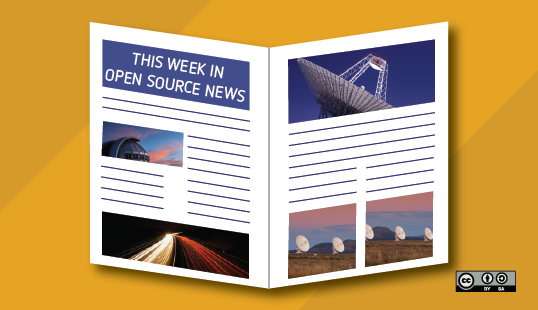In this week's edition of our open source news roundup, we take a look at Google's continuous fuzzing service, the latest release of the small but powerful Refracta Linux distro, and more.
Open source news roundup for November 27-December 10, 2016
Google rolls out continuous fuzzing service for open source software
As a former tester of Linux products at Cisco, I can tell you first-hand the value of proper testing for new products. Of course, bugs like Heartbleed make it clear that testing of existing open source products is also incredibly important, too—especially those that make up the foundation of the Internet and much other open source software.
An embarrassing incident from many years ago illustrates the problem quite well. I had written a small bit of game software as a gift for my son. I had tested rigorously, or so I thought, testing both good input as well as what I thought would be common errors in the input. Within less than a minute after I turned the game over to my son for the first time, he had broken it. I asked him what he had done and he showed me a totally random series of inputs that even the best tester would not have considered remotely possible. The moral of this story is that users will always do the unexpected (as will hackers, only more forcefully), and your code must be ready to repel both intentional and accidental attacks.
Google has just rolled out a project that provides continuous testing service named OSS-fuzz that is aimed at providing continuous testing of critical open source software. Fuzzing is a process that is used to detect coding and implementation bugs that can undermine the security and functionality of any software, but the tool is initially only available for use with "really large and critical" open source projects. Fuzzing itself is a technique that is used to discover bugs that might otherwise go undetected. Most testing—at least that I have been involved with—uses very stringent test inputs with carefully defined outputs from the tested software. The idea is that you know what goes in and that should produce a well-defined output. Fuzzing uses random inputs to aid in determining how software reacts when faced with undefined inputs.
Refracta 8.0 is a pint-sized powerhouse
There are hundreds of Linux distributions out there, many of which are created and live their short lives in relative obscurity. A few have long-term staying power, and that is usually because they have a decent combination of utility, stability, and a loyal following of users. As its release number suggests, Refracta 8.0 has those qualities needed for longevity.
Refracta is an interesting offspring of Devuan Jesse GNU+Linux, which is a systemd-free fork of Debian. Its forte is as a general use distribution for the so-called "average" user, rather than as a specialized distro. It also works very well running as live media using Xfce, a resource conserving desktop.
AMD strengthens gaming and VR on Linux with graphics improvements
Although I am not much of a gamer, I like my desktop graphics to be snappy, clean, and fast so I can enjoy some of the frou-frou desktop effects available with my KDE desktop. I have found that AMD Radeon graphics adapters work best for my usage style on my primary workstation, and I typically install an add-in Radeon graphics adapter even if the CPU has on-board graphics.
AMD is targeting gaming and VR content with their new Radeon WX 5100 GPU. Based on the number of video ports on the adapter in the picture on the PCWorld website, the WX 5100 supports up to four displays. AMD also announced support for FreeSync on Linux hosts. FreeSync allows the GPU to communicate directly with the displays which produces smoother graphics displays. AMD also announced the availability of a software driver that enables Linux to use Radeon Pro GPUs when creating VR content.
In other news
- The Libreboot C201 from Minifree is really really really ridiculously open source
- Open source SoC debuts
- 7 Linux predictions for 2017
Thanks, as always, to Opensource.com staff members and moderators for their help this week. Make sure to check out our event calendar to see what's happening next week in open source.







Comments are closed.